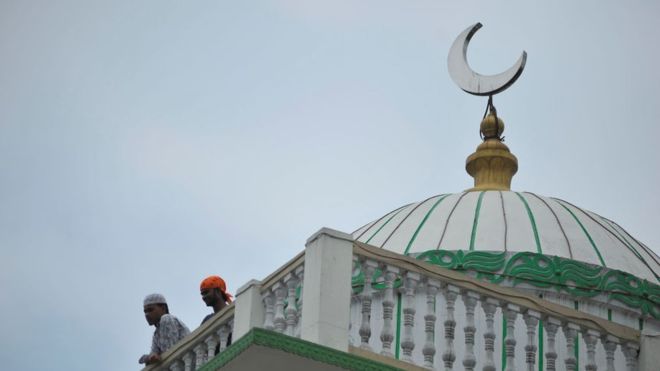Radicalization of Mosque is the Real Threat Real of Indonesia
In Indonesia places of worship exposed to radicalism are also quite troubling, where the results of a survey conducted by the NU P3M show as an early warning to be followed up with further research and research by the State Intelligence Agency.
Radicalization can also be interpreted as a process of indoctrination of individuals so that they accept the ideology and mission of certain radical groups. People who are indoctrinated in stages will excuse violent actions by groups that indoctrinate them.
The category of radicalism can be seen from the content delivered by lecturers at the mosque. So that it can be said that there were no mosques exposed to radicalism, but the speakers. The level of dissemination of radicalism content is divided into 3 categories, namely low for tolerable categories, then moderate categories that must be addressed.
The high category already contains lectures smelling of war, or encouraging movement towards support for ISIS or Marawi terrorist groups. In this
Mosques that have been exposed to radicalism viruses must be immediately
Communities need to increase their vigilance because the spread of radicalism has used technology such as social media. The National Police, BNPT, TNI
Chairperson of the Indonesian Association of the Association (IKADI) KH Ahmad Satori Ismail, reminded the public to remain vigilant about the use of religious facilities as a place for spreading provocations against people to hate each other and commit acts of violence against different beliefs.
Research from the Setara Institute also found the fact that mosques often served as a medium for delivering
Mosques on campus are also included as places that are prone to exposure to radicalism. Because the absence of mosque administrators makes the selection of speakers tend to follow the trend of religious teachers.
Besides this radicalism movement teaches someone to act with violence, as if they are not human beings who have hearts. Even though the people they target are not necessarily really guilty. Especially if they know that the target is non-Muslims, they can easily attack by reason of jihad. Even though it is clear that in Islam it is possible to carry out attacks if other people interfere, if not then it is forbidden to kill them.
Understanding of radicalism in any form will certainly threaten nationalism. They attacked the people who were brothers and sisters of the same country and people of the water. This is certainly very tarnishing the motto of Unity in Diversity, which is lived out by the founding father of the Indonesian nation. If the reason for radicalism is jihad, then
As citizens, of course, they must realize that the Indonesian nation’s founding father is not playing games to unite various ethnic groups, religions
Terrorism and radicalism by means of violence will only tarnish the good name of Islam. Because Islam actually teaches compassion and is not rigid to others. Radical adherents carry out jihad by justifying any means, while Islam teaches to carry out jihad by not destroying culture, but bringing culture and directing it to the Way of Islam.
The democratic system in Indonesia does guarantee freedom of expression, but of
The BNPT National Counter Terrorism Agency has stressed that the younger generation must understand the issue of radicalism and extremism. The goal is to be able to fend off the understanding of these understandings from individual terrorists. Colonel Sujatmiko, Head of Sub-Directorate of Prevention of Counter Propaganda, revealed that at present anyone can be brainwashed by understanding radicalism and extremism. If it is dragged along, it is not impossible for its adherents to lead to acts of terrorism.
To eliminate radicalism in the mosque environment, of course synergy between ministries and institutions is needed. This is because there are several factors that trigger the emergence of radicalism in Indonesia, such as understanding religion, injustice to poverty. Shallow and erroneous religious understanding is a major factor in the spread of radicalism to terrorism in Indonesia.
